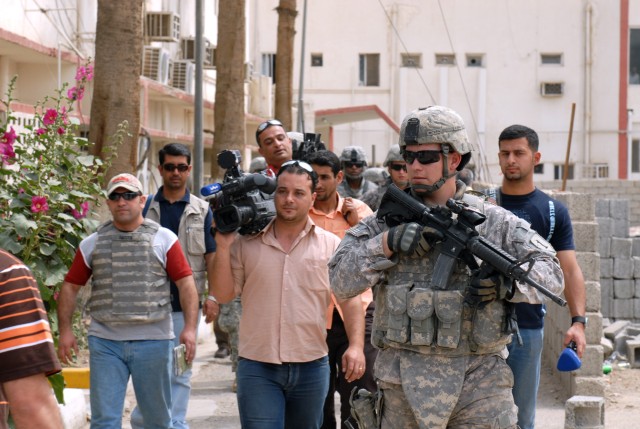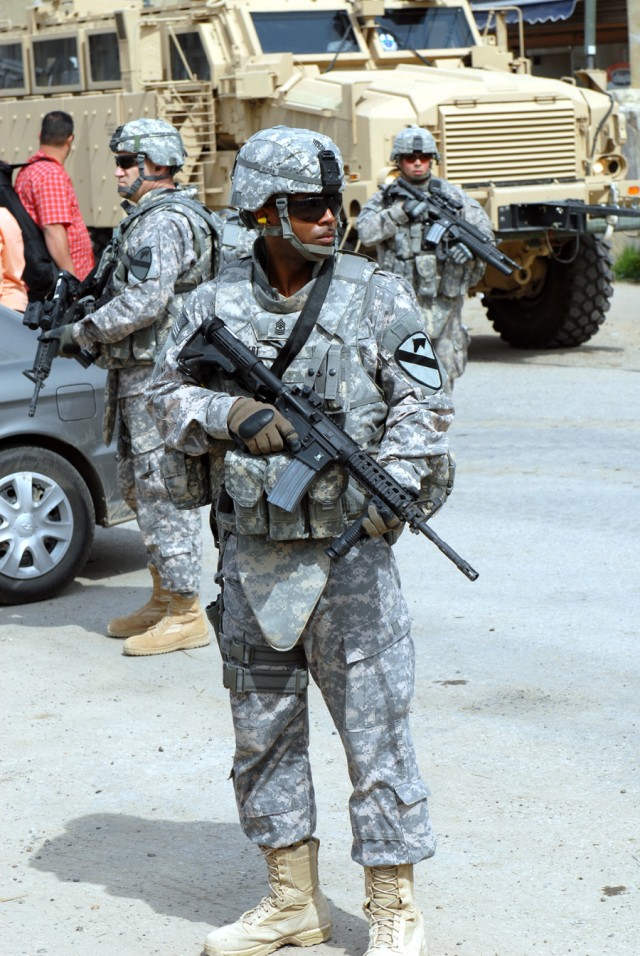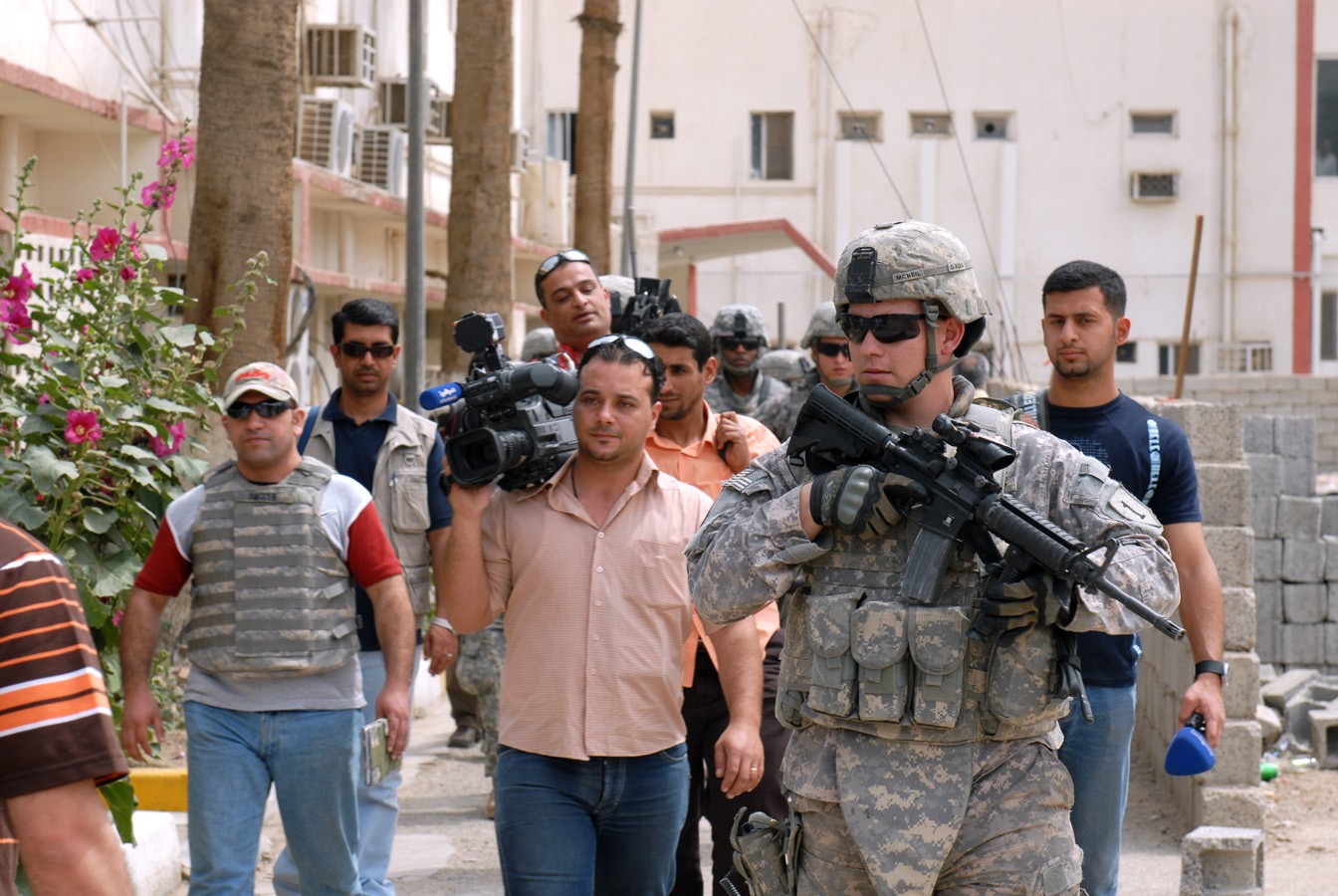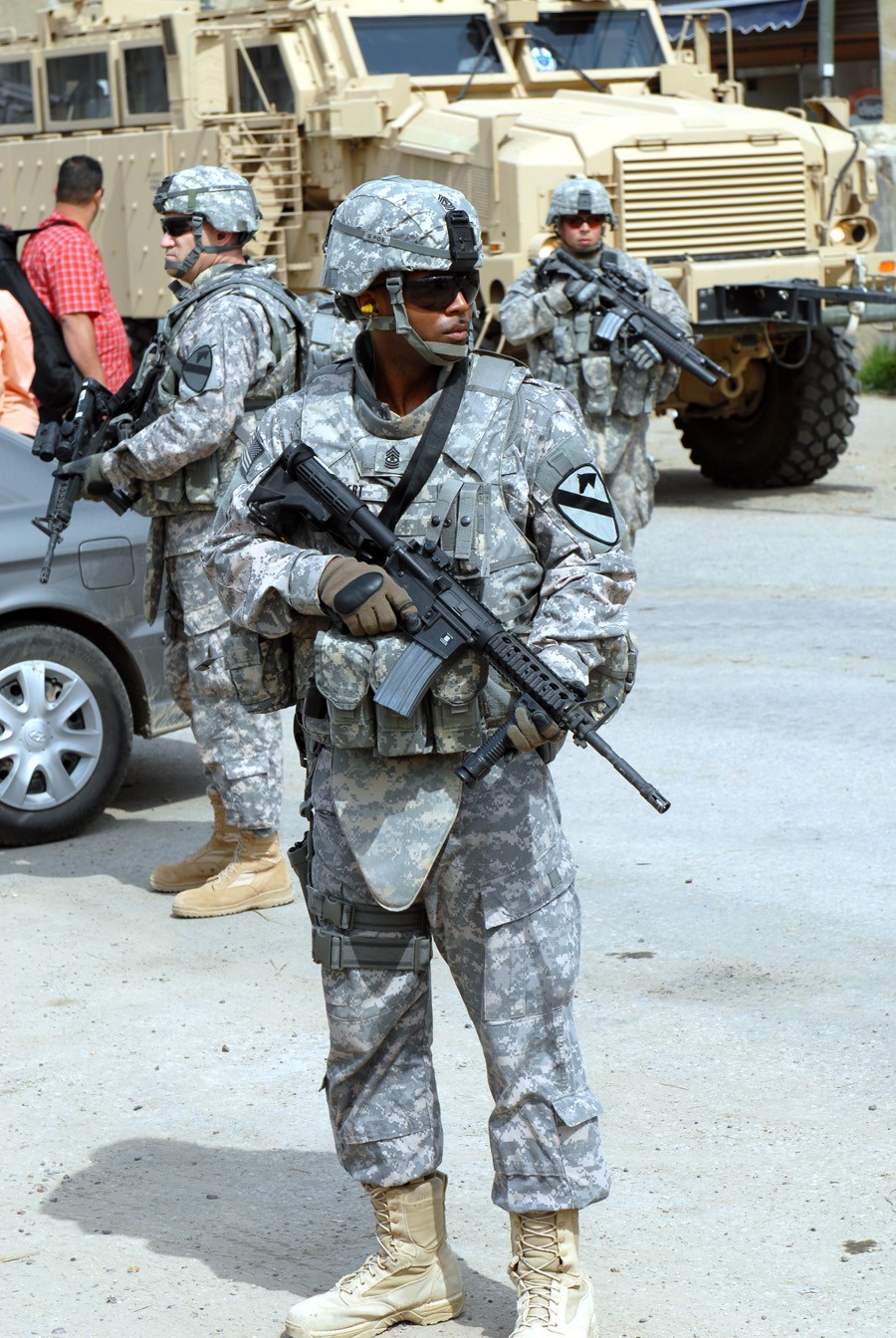BAGHDAD - Rocky Marciano, a World War II veteran became a legendary boxer with an impressive record of 49 victories and zero losses because of his training.
Marciano's record can be attributed to careful, meticulous preparation and skills that were developed during his amateur career. Marciano is noted as one of the few boxers who has never been knocked out.
Soldiers of the 2nd Brigade Combat Team, 1st Infantry Division much like Marciano, can't afford to let their guard down.
"Keeping the guard up is a key element to the safety of the troops," said Staff Sgt. John Konter, a military policeman, assigned to 2nd BCT, 1st Inf. Div. "It can make the difference of returning home safely or being taken home in a box."
"Because we all want to return home safely, we meticulously prepare for every mission," said Konter. "We review every possible scenario that could happen and discuss the different ways we could react to the situations during our convoy briefings."
According to Konter, every Soldier's input is valuable. He has them to convey something different during each briefing as a preparation for each mission.
"The reason why we want the Soldiers actively involved in our convoy briefings is because it keeps us from becoming complacent," said Sgt. Michael McNeil, a native of Daytona Beach, Fla., a truck commander for the 2nd BCT, 1st Inf. Div. "Complacency breeds bad habits. It is apparent by the significant acts that are seen every day, just because things haven't happened to us doesn't mean it can't happen to us."
Just like boxers, Soldiers don't make it easy for the opponents to strike them. They mentally and physically prepare to counter any strike that may be thrown at them by training.
"Because we train so much, it seems like everything is stuck in our head and we know exactly what to do if something should happen to us," said Spc. Jonathan Ray, a mechanic assigned to 2nd BCT, 1st Inf. Div. who hails from Louisville, Ky.
When they are not on mission, they are doing some type of training, according to Pvt. Jose Torre, a native of Los Angeles, who is an engineer, assigned as a gunner to the 2nd BCT, 1st Inf. Div. "I go to the gym every night to stay in shape or I take a couple hours to clean my weapon," said Torre.
Because of all the training that he has received, Torre said he feels confident when he is out on mission.
"Staff Sgt. Konter makes it a point to ensure we are all sufficiently trained in every position on our team because there may be a time we may have to fill someone's position," Torre added.
Although Iraq is much safer, and the majority of Iraqi people are friendly, there are still a few bad people in Iraq that can be dangerous. The Coalition forces remain vigilant like the Dagger Soldiers and keep their guards up. Just like any boxer, it is when the guard is down that they are most vulnerable.




Social Sharing